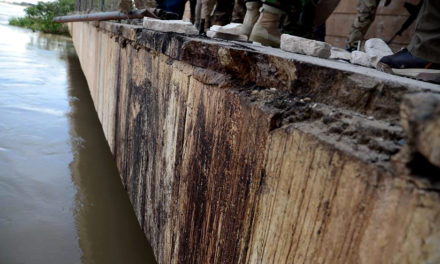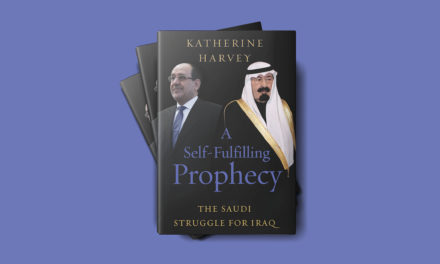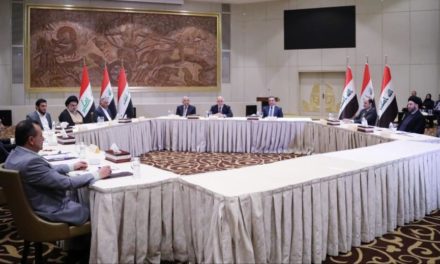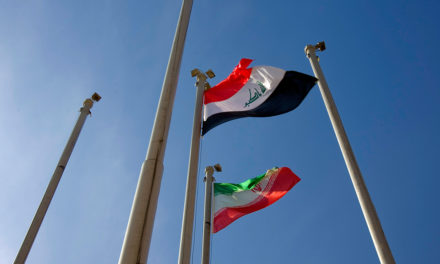(Photo: UNAMI/Office of Grand Ayatollah Sistani)
Grand Ayatollah Ali Al-Sistani’s meeting with the United Nations Special Representative to Iraq earlier this month signaled a moment for reflection on Iraq’s long-term challenges and aspirations. The statement issued by Sistani’s office following the meeting on November 4 was characteristically measured in tone, delivering a message that was both sobering and aspirational, offering what many have described as a roadmap for the nation’s recovery and advancement.
His message emphasized the need for a carefully devised, long-term effort led by Iraqis themselves, rejecting the idea of a simple solution to the country’s deeply rooted challenges. Instead, Sistani outlined five core pillars for reform that he believes are essential to building a prosperous Iraq: ensuring competence and integrity in senior leadership, preventing foreign interference, upholding the rule of law, restricting weapons to state control, and combating corruption at every level.
Sistani highlighted the immense suffering experienced by Iraq’s people across multiple fronts, urging them to learn from the past and work toward a better future. Central to his vision is the role of what he described as the “conscious elite” (al-nukhab al-waʿiya), a term that has been interpreted to refer to experienced and conscientious people of influence who are deeply committed to the nation’s welfare rather than driven by personal interests. Their responsibility is to guide the country toward progress, balancing idealism with realism and making decisions rooted in the collective good.
The vision Sistani outlines for Iraq is phased and incremental, recognizing that progress cannot be achieved overnight. He identifies security as the foundation for all improvements, establishing the groundwork for stability. Stability, in turn, creates the conditions necessary for progress, which ultimately enables prosperity. This sequence underscores the importance of addressing any issues that undermine Iraq’s national security as a prerequisite for charting the country on a sustainable path to development.
At the heart of Sistani’s vision is a commitment to inclusivity and equal citizenship. He envisions an Iraq where all citizens, regardless of their ethno-religious backgrounds, share equally in the nation’s progress. This commitment to non-discrimination and equal opportunity is essential to fostering a united Iraq, ensuring that the benefits of development reach every community.
Achieving this vision requires more than aspirations. Sistani calls for practical strategies grounded in evidence and reflecting a realistic understanding of Iraq’s current conditions. A cornerstone of these strategies is the appointment of qualified and ethical individuals to leadership positions. Sistani stressed that governance should prioritize both competence and integrity, ensuring that those in power possess not only technical expertise but also a genuine commitment to public service.
He further called for the prevention of foreign interference “in all its forms”, implying that the country’s future must not be dictated by external powers—whether in security, politics, or other domains. Sistani’s message is unambiguous: it not only addresses all of Iraq’s immediate neighbors but also broader international actors, reinforcing the need for Iraq’s leaders to demonstrate true independence from all forms of foreign influence.
Sistani underscores the vital importance of upholding the rule of law, emphasizing that no one should be above accountability. He also identifies corruption as one of the most significant barriers to Iraq’s progress, stressing that combating it at all levels is a cornerstone of meaningful reform.
Additionally, he advocates for restricting weapons exclusively to state control, directly addressing the influence of armed groups operating outside government authority. Many interpret this as a pointed critique of Iraq’s numerous paramilitary groups, asserting that decisions on matters of war and peace must rest solely with the state and its formal institutions. In this vision, Sistani’s concept of Iraq aligns with that of a modern nation-state—one that maintains a monopoly on the legitimate use of force, a fundamental hallmark of sovereignty and effective governance.
Despite his aspirations, Sistani tempered his message with realism, acknowledging that Iraq has a long way to go. In doing so, he effectively urges Iraqis to recognize that the path to fundamental change is a gradual process, requiring patience and perseverance. This is a mission for Iraqis themselves, rather than relying on external forces to overcome internal challenges. His words reflect profound faith in the resilience and capability of Iraq’s people to lead their own transformation.
In essence, Grand Ayatollah Sistani’s statement is a call to action, urging Iraqis to embrace a sustainable and inclusive approach to rebuilding their nation. His vision is grounded in Iraqi leadership, careful planning, and an unwavering commitment to independence, integrity, and unity. While the road ahead may be long, Sistani’s message offers hope and direction for a future defined by security, stability, and shared prosperity.

Muhammad Fouad
Muhammad Fouad is a writer and researcher who specializes in Shia political affairs.










